Bitcoin derivatives metrics suggest $70K is here to stay
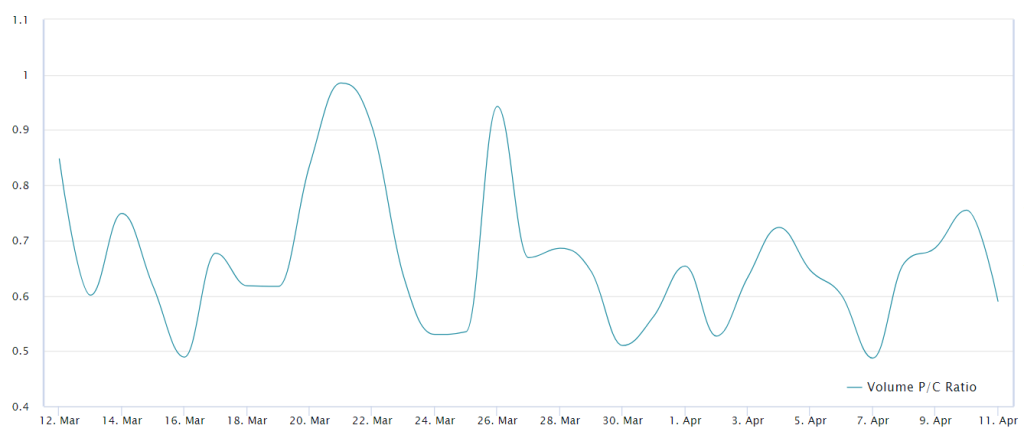
Reduced leverage use in Bitcoin futures greatly reduces the odds of cascading liquidations in the case of a BTC price pullback.

Since March 25, Bitcoin (BTC) has struggled to maintain its value above the $71,000 mark, a trend that some may view as a sign of bearish momentum. Nevertheless, insights from the BTC derivatives market reveal a more stable environment, as the previous atmosphere of rampant optimism has notably subsided.
Resilient U.S. inflation strengthens the bull case for Bitcoin
Currently, Bitcoin finds it challenging to hold its ground above the $70,000 threshold. Yet, certain analysts believe that the recent U.S. inflation figures—showing unexpected resilience—and the unsustainable U.S. government fiscal trajectory create an ideal backdrop for investing in scarce assets.

Market analyst MatticusBTC attributes the inflation surge to the significant monetary expansion orchestrated by the U.S. Federal Reserve during the 2020-2021 period. As a result, the Federal Reserve may have no choice but to maintain elevated interest rates. However, this strategy has its limitations, especially considering the interest burden of U.S. government debt.
Higher interest rates pose problems for businesses and households, especially when they have to refinance or get new loans. This situation usually reduces investors’ appetite for risk-on assets because it slows down economic growth. However, in 2024, investors started looking for alternatives to put their money apart from the U.S. Treasury bonds.
In the past 30 days, both gold and Bitcoin have soared to all-time highs, while the U.S. government 2-year notes dropped to a nine-month low on April 9. This movement suggests a lack of investor appetite for a 4.7% fixed-income yield as a hedge against inflation.
The stock market might dictate Bitcoin’s performance in the near term
Bitcoin critics suggest that the recent drop in the S&P 500 index from its all-time high of 5,265 on March 28 may signal an upcoming economic downturn. Given the strong correlation between Bitcoin and the stock market, which has been over 80% in the past month, Bitcoin’s price might initially fall if stock market issues continue.
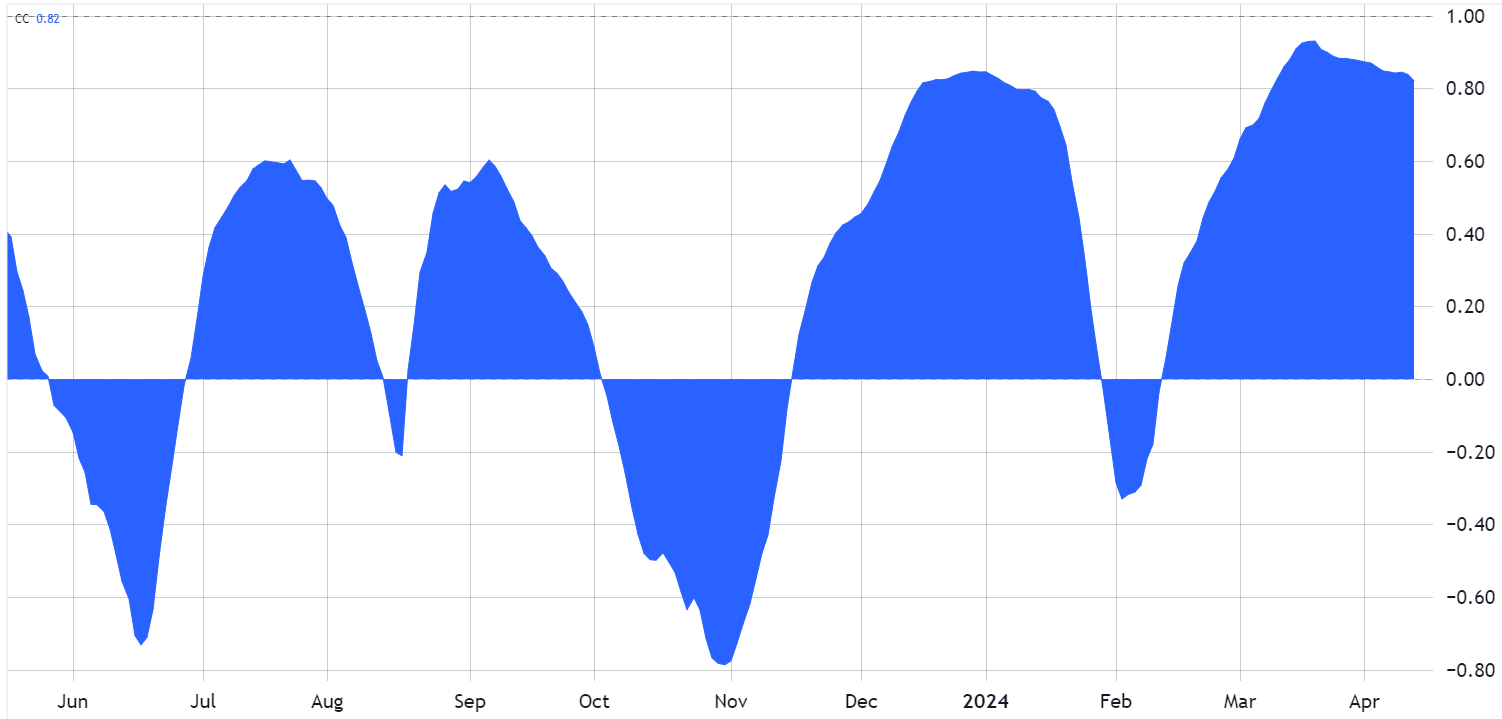
Despite facing resistance at the $72,000 level, the BTC futures and options markets are currently displaying a level of neutrality. This stability is underscored by two critical indicators, highlighting a healthier demand for leverage compared to the situation at the end of March. The concern over excessive leverage is valid, especially with the open interest in BTC futures at $34.3 billion.
Perpetual contracts, also known as inverse swaps, incorporate a rate that is recalculated every eight hours. A positive funding rate signals increased demand for bullish positions.

Data reveals a notable funding rate peak at 0.07% per eight-hour period on March 31, equating to an annualized rate of 1.5% per week. However, this indicator has adjusted, with the current rate at 0.3% weekly. This reduced pressure on traders using leverage for long positions signals a more equitable market dynamic and lays the groundwork for potential bullish momentum.
To confirm whether the decreased demand for leveraged long positions accurately reflects market sentiment, one should analyze the balance between call (buy) and put (sell) options demand. An increase in put option activity often reflects a market leaning toward a neutral or bearish outlook.
Related: Bitcoin bounces back as Grayscale ETF outflows hit new record low
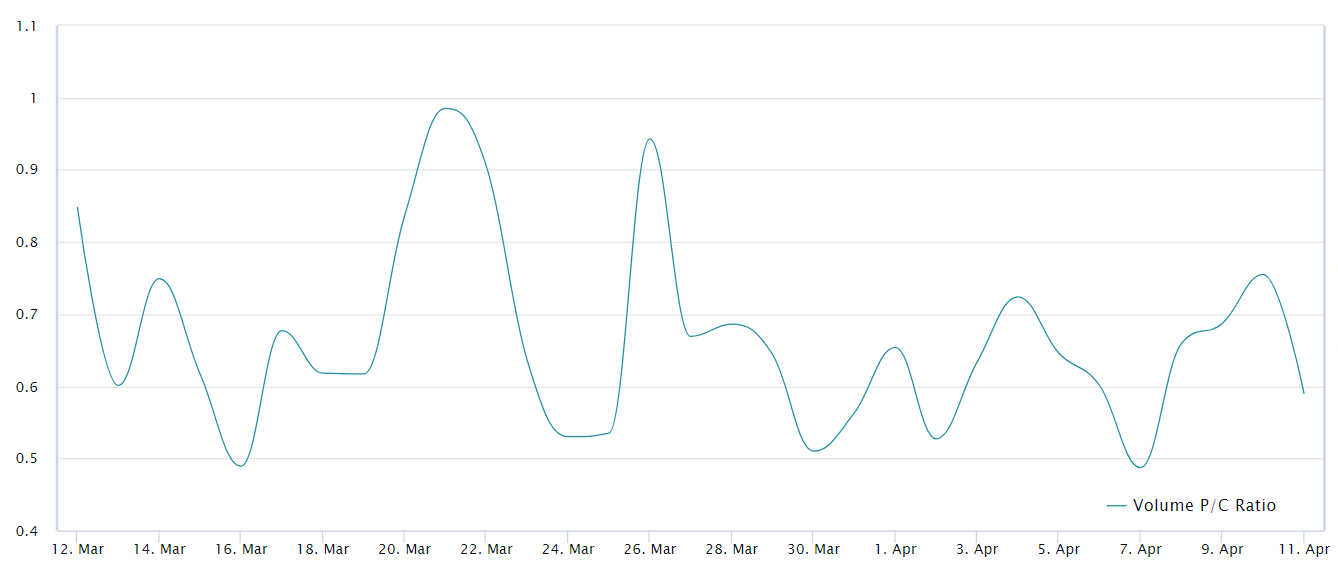
Data from the past few weeks shows that put options have consistently been outpaced by call options, with a significant 35% average volume disparity. This indicates a lower demand for protection against a price decline, an intriguing trend considering Bitcoin’s multiple tests of the $64,500 support level in early April.
While there’s no certainty that Bitcoin will surge past its all-time highs in the near future, the threat of a major sell-off triggered by excessive leverage appears to have subsided. So, unless there’s a major drop in overall economic conditions, it seems unlikely that Bitcoin will fall below $65,000.


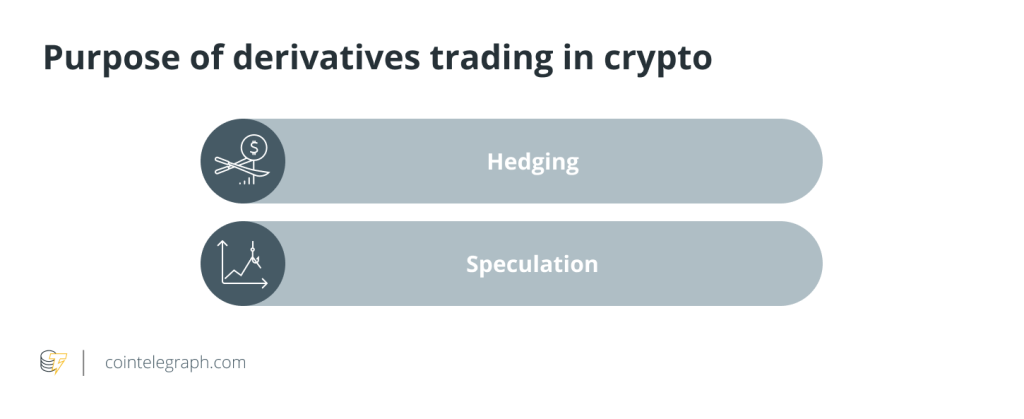


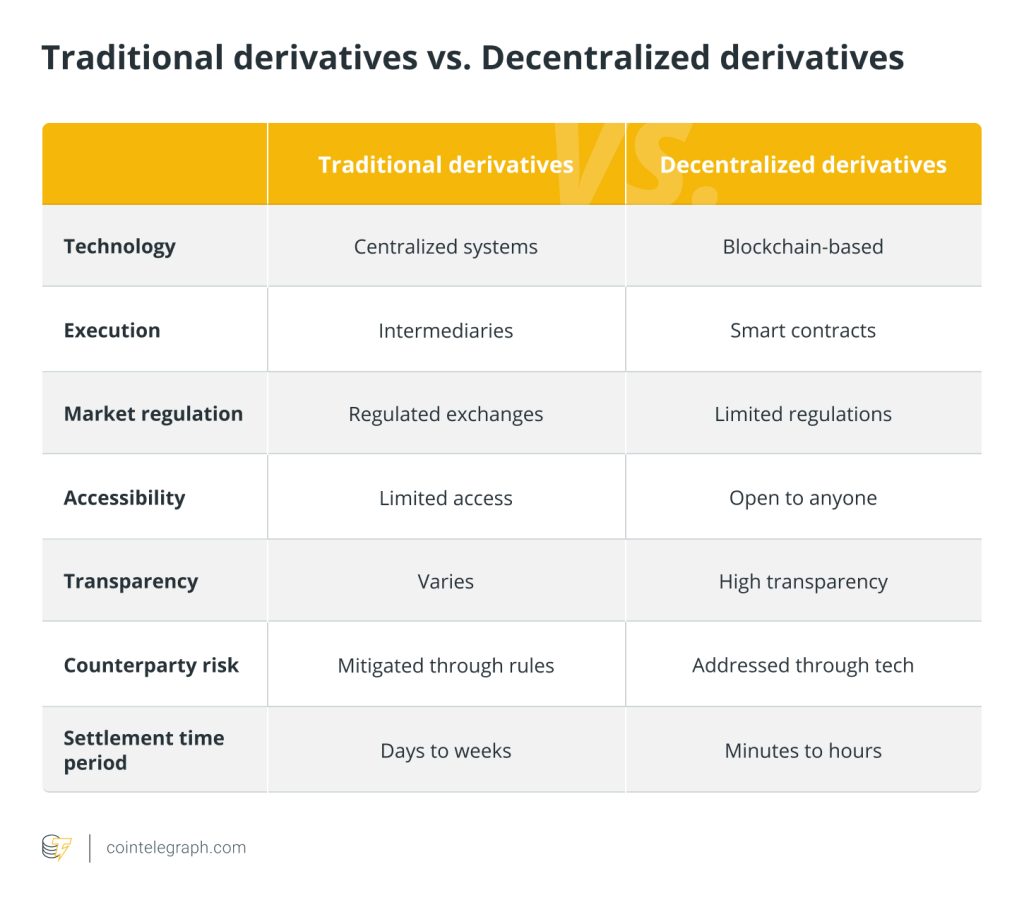
Responses